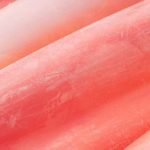What Are the Best Organic Fertilizers for Plants
In recent years, the trend toward organic gardening has surged, driven by a growing awareness of environmental sustainability and health concerns. Organic fertilizers, which are derived from natural sources, offer a way to nourish plants while minimizing harmful chemicals in the soil and surrounding ecosystem. Choosing the right organic fertilizer is crucial for promoting healthy plant growth, enhancing soil structure, and encouraging beneficial microbial activity. Let’s explore some of the best organic fertilizers that can help your garden thrive.
Compost: The Garden Superstar
Compost is often hailed as the cornerstone of organic gardening. This nutrient-rich blend of decomposed organic matter, including kitchen scraps and yard waste, enriches the soil with essential nutrients and improves its structure. It provides a slow-release source of nitrogen, phosphorus, and potassium, while also enhancing moisture retention and soil aeration. Whether you make your own or purchase it from a garden center, compost is a versatile and effective organic fertilizer suitable for almost all plants.
Manure: Nature’s Nutrient Powerhouse
Animal manure, particularly from herbivores like cows, horses, and chickens, is a potent organic fertilizer. It is rich in nitrogen, phosphorus, and potassium, making it ideal for enhancing plant growth. However, fresh manure can be too strong for plants and may contain pathogens, so it’s best to use well-aged or composted manure. This process not only reduces the risk of contamination but also allows nutrients to become more readily available to plants. Apply it in moderation, working it into the soil to provide a balanced nutrient supply.
Bone Meal: A Phosphorus Boost
Bone meal is a fantastic organic fertilizer, particularly when it comes to promoting root development and flowering. It is made from ground animal bones and is an excellent source of phosphorus, which is essential for energy transfer and DNA synthesis in plants. This makes bone meal especially beneficial for flowering plants and root crops. When using bone meal, it’s important to follow package instructions to avoid overapplication, which can lead to nutrient imbalances.
Fish Emulsion: Liquid Gold for Plants
Fish emulsion is a liquid organic fertilizer derived from fish remains and byproducts. Rich in nitrogen, phosphorus, and trace minerals, it promotes vigorous growth and improves the overall health of plants. The liquid form makes it easy to apply, allowing for quick absorption by plants. Fish emulsion is particularly effective during the growing season, providing a nutrient boost to leafy greens and flowering plants. Dilute it with water according to package instructions to prevent over-fertilization.
Seaweed Extract: A Nutritional Power-Up
Seaweed extract, often available in liquid form, is another exceptional organic fertilizer that enhances plant growth. Packed with micronutrients, vitamins, and amino acids, it promotes robust plant health and stress resistance. Seaweed provides a slow-release source of nutrients and helps stimulate root development. Regular applications can improve soil structure and promote beneficial microbial activity. This makes it a favorite among organic gardeners looking to achieve lush, vibrant gardens.
Worm Castings: Nature’s Fertilizer
Worm castings, also known as vermicompost, are produced through the digestion of organic materials by earthworms. This rich, dark substance is teeming with beneficial microorganisms and nutrients, making it one of the most potent organic fertilizers available. Worm castings improve soil structure, enhance nutrient availability, and promote healthy plant growth. They can be mixed into potting soil or sprinkled around plants as a top dressing. The slow-release nature of worm castings ensures that plants receive consistent nourishment over time.
Nourishing Your Garden Naturally
Choosing the right organic fertilizers is essential for cultivating a thriving garden. Each type of organic fertilizer offers unique benefits, and understanding how to use them effectively can lead to bountiful harvests and vibrant blooms. By incorporating compost, manure, bone meal, fish emulsion, seaweed extract, and worm castings into your gardening routine, you can provide your plants with the nutrients they need while supporting a healthy, eco-friendly environment. With a little knowledge and effort, your garden can flourish naturally and sustainably.


